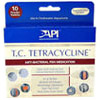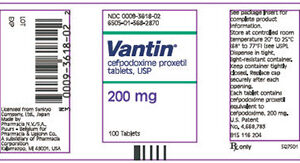Tetracycline is a broad-spectrum antibiotic medication that belongs to the tetracycline class of drugs. It is commonly used to treat various bacterial infections caused by susceptible microorganisms. This drug works by inhibiting the growth of bacteria in the body, thereby helping to eliminate the infection. Tetracycline is available in the form of capsules, tablets, and suspensions, and it is typically taken orally. It is important to follow the prescribed dosage and duration of treatment to ensure its effectiveness.
Avoiding Risks with Tetracycline
Tetracycline should not be taken by individuals who have a known hypersensitivity or allergy to this medication or any of its components. It is also contraindicated in pregnant women, especially during the second and third trimesters, as it can harm the unborn fetus and cause permanent teeth discoloration in the developing baby. Breastfeeding mothers should avoid tetracycline as it can be passed onto the infant through breast milk, leading to potential adverse effects.
Adverse Reactions
Like any medication, tetracycline can cause side effects in some individuals. Common adverse reactions include nausea, vomiting, diarrhea, abdominal pain, and loss of appetite. These gastrointestinal symptoms are usually mild and temporary. Tetracycline can also cause skin reactions such as rash, photosensitivity, and hypersensitivity reactions. In rare cases, severe allergic reactions, liver toxicity, and kidney damage may occur. If any unusual or severe side effects occur while taking tetracycline, it is important to seek medical attention immediately.
Taking Tetracycline Safely
When taking tetracycline, it is important to follow the guidelines provided by your healthcare provider. Take the medication as prescribed and do not exceed the recommended dosage or duration of treatment. Tetracycline should be taken on an empty stomach, at least 1 hour before or 2 hours after meals, as food and certain beverages can decrease its absorption. If a dose is missed, take it as soon as you remember, unless it is close to the next scheduled dose. In case of an overdose, seek immediate medical attention, as it can lead to symptoms such as severe nausea, vomiting, and dizziness.
Tetracycline and Other Medications
Tetracycline may interact with other medications, potentially altering their effectiveness or increasing the risk of side effects. It is important to inform your healthcare provider about all the medications, over-the-counter drugs, and herbal supplements you are taking before starting tetracycline. Some medications that may interact with tetracycline include antacids containing aluminum, calcium, or magnesium, as well as iron supplements, zinc supplements, and oral contraceptives. These interactions can decrease the absorption of tetracycline or affect the absorption of other medications, so it is crucial to separate their administration if necessary.
Your Questions Answered
-
Can tetracycline be taken during pregnancy?
Tetracycline is contraindicated during pregnancy, especially during the second and third trimesters, as it can harm the developing fetus and cause permanent teeth discoloration.
-
Can tetracycline be used to treat viral infections?
No, tetracycline is only effective against bacterial infections and should not be used to treat viral infections such as the common cold or flu.
-
Can tetracycline be taken with dairy products?
No, calcium-rich foods and dairy products can interfere with the absorption of tetracycline, so it is important to take this medication on an empty stomach.
-
Can tetracycline cause tooth discoloration?
Yes, tetracycline can cause permanent teeth discoloration, especially in children under 8 years of age and during pregnancy.
-
Can tetracycline be used for long-term treatment?
Tetracycline is generally not recommended for long-term use due to the potential development of drug-resistant bacteria and the risk of adverse effects.





Reviews
There are no reviews yet.